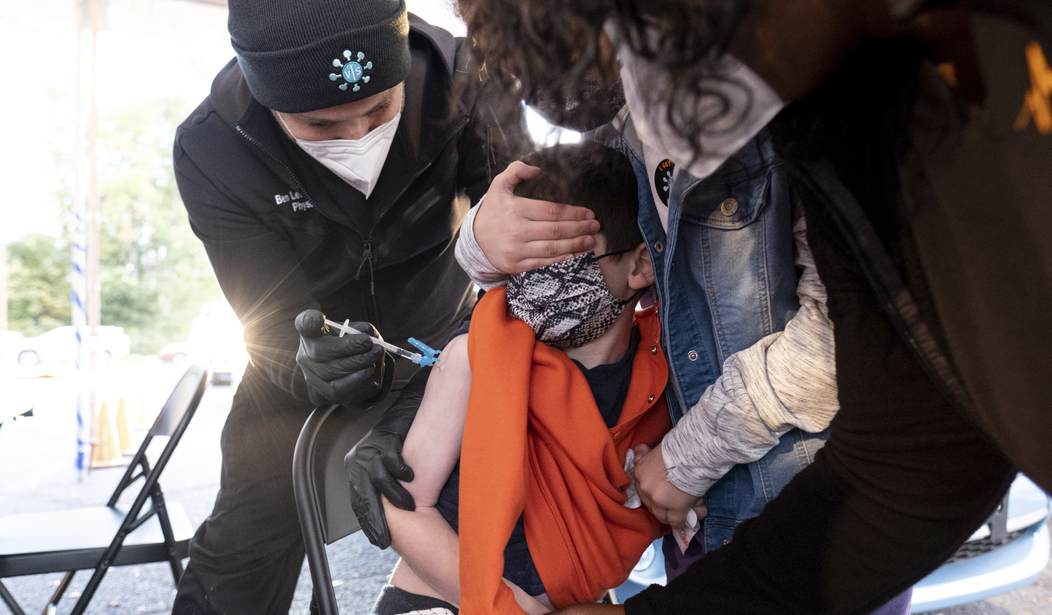Looks like I’m vacationing in Appalachia this spring.
No, seriously, I’m not sold yet on the benefits of a fourth dose (at least in the next six months), especially if Omicron really does mark an “exit wave” from the pandemic like we’re all hoping. But hats off to Gov. Jim Justice for having consistently bucked populist orthodoxy in his state about the value of vaccines. Justice is a Republican but he’s got a mountain of money and no national prospects so he’s firmly in DGAF territory when it comes to telling his voters things they don’t want to hear.
Today he told them to get ready for dose number four, at least if they’re 50 or over or an essential worker. Watch two minutes.
Is it time already? I got my third dose just six weeks ago. And my much-older unvaccinated relatives survived a bout with Omicron this week in NYC. It’s unclear if a fourth dose is necessary. Or that it would work.
It works, said Israeli prime minister Naftali Bennett a few days ago. The early data shows a fivefold boost in antibodies over the third dose.
Bennett, in a statement, said the preliminary results indicated “a very high likelihood that the fourth dose will protect vaccinated people to a great degree against infection to some degree and against severe symptoms.”…
“The fourth shot acted just like the first and second shots,” said Sheba spokesperson Steve Walz. “A few people had low fevers, a few had sore arms but nothing more than that.”
On Monday, a week after the boosters were administered, researchers began testing each person’s level of coronavirus antibodies and found the average fivefold jump. “It’s working,” Walz said. “It seems the fourth vaccine is just as effective.”
Israel’s president, Isaac Herzog, has already received dose number four. But to what end?
It’s possible that someone who’s double-boosted will be less likely to get infected, but (a) that protection will be temporary since antibodies inevitably decline and (b) Omicron may be sufficiently distinct from the original Wuhan strain on which the vaccines are based that it’s still capable of infecting the quadruple-vaccinated. Plenty of Americans who’ve had three doses have been infected. It’s hard to believe a fourth dose would provide much extra protection beyond a few weeks or months, when antibody levels would begin to fall off again. “The endless chasing of boosters in order to increase antibodies and increase marginal relative protection but modest absolute benefit is a waste of resources,” said one expert at Johns Hopkins. It’d be one thing if a fourth dose turned out to provide a meaningful upgrade in defenses against severe disease, but does it?
Even two doses are pretty damned good on that metric:
A new CDC analysis found that severe illness and death from Covid were extremely rare in vaccinated people. Among 1,228,664 fully vaccinated people across the US, 185 (0.015%) had severe illness and 36 (0.0033%) died. Covid vaccines are extremely safe and remarkably effective.
— Dr. Tom Frieden (@DrTomFrieden) January 6, 2022
If the new variant were more dangerous than previous strains, it would make sense to scramble and do everything possible to limit transmission. But since it’s less dangerous — and since limiting transmission seems frankly impossible, to the point where Israel’s also considering another lockdown — then what’s to be gained?
The Times spoke to various experts who were puzzled by Israel’s strategy. If you’re going to do a fourth shot, said some, it pays to wait a bit until an Omicron-specific booster is available. (Assuming manufacturers end up pulling the trigger on bringing one to market.) That really might limit transmission to a substantial degree — if it works. But there’s a chance that it wouldn’t:
The second worry, called “original antigenic sin,” seems more plausible. In this view, the immune system’s response is tailored to the first version of the virus, and its responses to subsequent variants are much less powerful.
With more than 50 mutations, Omicron is different enough from previous variants that antibodies made for the original version of the virus struggle to recognize the latest version.
“We have enough clues that it could be a problem,” said Dr. Amy Sherman, a vaccinologist at Harvard University. “We’ve certainly seen evolution in a short period of time.”
In other words, a fourth dose with a new Omicron-specific vaccine might lead us to produce antibodies against the original virus, whose spike protein the earlier vaccines taught us to detect, instead of Omicron. What good is that? And meanwhile, as we’re scrambling to pump Israelis and Brits and Americans full of vaccines on the theory that more must be better, undervaccinated countries are at risk of producing scary new variants that might not be as mild as Omicron. The new strain seems to have come from Africa, where vaccination rates are low. The strain that previously showed the most ability to escape immunity, Beta, also came from Africa. Our best protection at this stage of the pandemic, when everyone in the U.S. who wants to be triple-vaxxed can easily achieve that, may be to focus on vaccinating the rest of the world to try to choke off new variants before they develop. The more immunity there is abroad, the less likely that a strain will find someone who’s immunocompromised and turn their body into a laboratory for mutations.
Speaking of which, we’ll still need to keep a few extra doses here for the immunocompromised, some of whom have already gotten fourth and even fifth shots in hopes of boosting their defenses to normal-ish levels.
I’ll leave you with this. A fourth dose might not do much for the immune system but the thought of extra protection is a great morale booster for the elderly.







Join the conversation as a VIP Member